This week we revisit a case submitted by Dr Cheh Goh. A nurse brings in their 62-year-old father...
.jpg?height=200&name=HCE%20HubSpot%20blog%20images%20600x350%20(52).jpg)
Learn how to assess more complex cases and make differential diagnoses for various dermatological conditions.
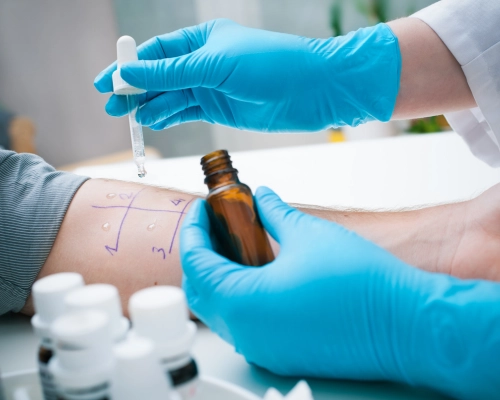
Presented by noted dermatologists, this GP dermatology course will increase your clinical knowledge, teach you how to assess more complex and rare cases of the skin and hair, and make differential diagnoses for various dermatological conditions.
- Learn various techniques allowing treatment of more complex cases in the primary care setting.
- This course is for medical doctors, International Medical Graduates, registered nurses, dermal therapists, pharmacists, and degree-qualified health professionals.
- CPD-accredited and university-assured.
Fulfils 50 hrs for medical professionals in Australia*
100% online
$2095
Special rates available
78 hrs
Self-paced
- Diagnose and treat dermatological emergencies in a timely manner.
- Effectively manage vitiligo, psoriasis, skin infestations, sarcoidosis, lichen planus, and more.
- Recognise dermatomyositis, an uncommon yet severe inflammatory skin disorder.
- Manage difficult cases of atopic dermatitis, a prevalent inflammatory skin condition.
- Increase your clinical skills to assess more complex and rare dermatology cases and make differential diagnoses for various dermatological conditions.
- Gain knowledge that is often lacking from undergraduate medical studies to confidently address your patients’ skin, hair, and nail concerns on a day-to-day basis.
This general dermatology module focuses on dermatological emergencies, vitiligo treatments and infestations. The first section focuses on identifying the different categories of dermatological emergencies including erythroderma, DRESS syndrome, necrotizing fasciitis, staphylococcal scalded skin syndrome, meningococcal infection and SJS/TEN. Clinical features, differential diagnosis, pathology, investigations, complications and management of these conditions are outlined. The second section focuses on vitiligo and the management and emerging therapeutic modalities in treating this autoimmune condition. The third section focuses on identifying skin infestations including candidiasis, scabies, strongyloidiasis, cutaneous larva migrans, schistosomiasis and leishmaniasis. Management and recommended treatment for these conditions are also covered in this section. Clinical and dermoscopic images are used throughout the module.
This module focuses on the treatment of dermatomyositis and the treatment of sarcoidosis. Participants will learn to describe and manage the different types of systemic treatment for dermatomyositis and sarcoidosis. These multisystem diseases are challenging and various treatment options are discussed. The module outlines the long-term risk of using prednisone and includes ways to minimise osteoporosis. The use of steroid-sparing medications including methotrexate, azathioprine, hydroxychloroquine, mycophenolate mofetil and cyclosporin along with associated side effects are discussed. The module concludes with the management and treatment options of sarcoidosis. Images are used throughout the module to assist with learning.
This module focuses on systemic treatment options for psoriasis and lichen planus. Participants will learn the different types of systemic treatments for these conditions including collecting clues from patients to determine the best treatment options. The first section focuses on oral therapies and biologic injectable treatments for psoriasis including methotrexate, oral retinoids, cyclosporine, apremilast, adalimumab, etanercept, infliximab, ustekinumab, secukinumab and ixekizumab. The second section briefly introduces the six Ps of lichen planus including planar, purple, polygonal, pruritic, papule and plaque. It then outlines systemic treatment options including prednisone, acitretin, mycophenolate mofetil, cyclosporine and azathioprine based on clinical cases. Benefits and risks associated with treatment options for both psoriasis and lichen planus are discussed in the module.
This module focuses on the systemic treatment for atopic dermatitis and the differential diagnosis and treatment of acne. The first section discusses improving the ability to accurately diagnose and manage 90 per cent of atopic dermatitis cases including recognising the differences in presentation and distribution characteristics from infancy to adulthood. The associated features, findings, diagnosis and differential diagnosis of atopic dermatitis are outlined. Treatment options including reducing contact with irritants and exposure to allergens, emollients, topical steroids, antihistamines, antibiotics, steroid-sparing and systemic therapies are discussed in detail. The second section explores the differential diagnosis of acne including keratosis pilaris, perioral dermatitis, angiofibroma, pseudofolliculitis barbae, acne keloidalis nuchae, folliculitis and hidradentis suppurativa. The treatment options of acne such as topical keratolytic agents, topical antibiotics and systemic treatments are discussed. Clinical images and evidence-based guidelines for acne treatment are included.
This module focuses on patch testing, contact dermatitis and cutaneous lymphomas. The first section focuses on how and when to do patch testing. It outlines possible complications and how to interpret test results. The module then focuses on the differences between allergic and irritant contact dermatitis the causes and the clinical management of these conditions. Common allergens discussed include nickel, cobalt, chromate, fragrance, medicaments, preservatives, rubber and plants allergies. Predisposing factors of irritant contact dermatitis are outlined. The second section focuses on identifying and distinguishing features of cutaneous lymphoma including common primary cutaneous T-cell lymphoma, mycosis fungoides, Sézary syndrome, lymphomatoid papulosis, primary cutaneous B-cell lymphoma and leukaemia cutis. The appropriate investigations and management of these conditions are discussed in detail. Clinical and dermoscopic images are used throughout the module.
This module focuses on rare nail disorders and cicatricial alopecia. The first section focuses on identifying various nail diseases including Beau’s lines, onychomadesis, nail pitting, onychorrhexis, pterygium, trachyonychia, true leukonychia, koilonychia, onycholysis, onychauxis, splinter haemorrhages, nail discolouration, longitudinal melanonychia, clubbing, onychogryphosis, median canaliform dystrophy, ingrown toenail, paronychia, subungual hematoma, pincer nails and tumours of the nail bed. The causes associated with these nail changes are discussed. The next section focuses on cicatricial and non-cicatricial alopecia conditions. Primary cicatricial alopecia conditions that are either lymphocytic (chronic cutaneous lupus erythematosus, lichen planopillaris, frontal fibrosing alopecia, central centrifugal cicatricial alopecia, brocq pseudopelade), and neutrophilic (folliculitis decalvans, dissecting cellulitis of the scalp) are discussed. Non-cicatricial conditions including androgenetic alopecia, telogen and anagen effluvium, alopecia areata, tinea capitis and traumatic alovecia are included. The symptoms, management and treatment for these conditions are covered in detail. Clinical and dermoscopic images are used throughout the module.
This module focuses on hidradenitis suppurativa and bullous pemphigoid. Participants will learn to identify treatment plans for various severities of hidradenitis suppurativa and safely monitor the combination of antibiotic therapy and biologic therapy. Discussion includes clinical findings, risk factors, associated disorders and syndromes, treatment ladder, Hurley staging and Sartorius scale. Five case studies focusing on the management of this condition are discussed. The next section focuses on identifying the correct steps to differentiate blistering disorders and making the right treatment decisions for these conditions. Three cases studies focusing on investigations, diagnosis and treatments of bullous pemphigoid are outlined. Clinical images are used throughout the case studies to assist with learning.
This module focuses on nine more challenging general dermatology case studies, focusing on various dermatology conditions. The cases describe how to approach each case and are supported by clinical images. Differential diagnoses, history taking, investigations, management strategies and treatment options are included. In several of these cases, biopsy/surgical options and adjuvant therapies are discussed.

Professor of Dermatology and Cutaneous Surgery at the University of Texas, USA.
Founder and medical director of the University Health System Skin Clinic in San Antonio, USA
Professor Richard Usatine is the Professor of Dermatology and Cutaneous Surgery at the University of Texas. He is the author of nine books and over 120 papers, founder of the Interactive Dermatology Atlas on the web, and is the most recognised skin cancer presenter in the USA. Since 2000, he has been chosen yearly by his peers to be included in The Best Doctors in America. He is also the national chair of the yearly Skin Course put on by the American Academy of Family Physicians, and is the founder and medical director of the University Health System Skin Clinic in San Antonio.
Richard has been involved in Global Health through his work in Mexico, Guatemala, Panama, Haiti and Ethiopia. In 2000, Richard Usatine was recognised as the national recipient of the Humanism in Medicine Award, by the Association of American Medical Colleges.

Associate Professor Caterina Longo is a board-certified dermatologist specialising in the diagnosis and treatment of skin cancers. Although providing the best care possible for patients remains her primary goal, she also committed to education and clinical research. She is actively involved in clinical research and has published numerous papers on topics related to skin cancer with an emphasis on melanoma, atypical nevi, Spitz/Reed nevi and non-melanoma skin cancer.
Caterina’s research interests are focused on the use of imaging instruments such as dermoscopy and confocal laser microscopy to recognise skin cancer early in its development. She pioneered the use of ex vivo fluorescence confocal microscopy for micrographic Mohs surgery applied for basal cell carcinoma and other visceral tumours. Caterina frequently lectures on these topics both nationally and internationally.

Dr Zoe Apalla was board certified in dermatology in 2008 at the Aristotle University of Thessaloniki, Greece. She was trained in dermatopathology at the St John’s Institute of Dermatology in London in 2010 and obtained her PhD degree at the Aristotle University of Thessaloniki in 2013.
Zoe has worked as a consultant in the First Dermatology Department of the Aristotle University of Thessaloniki since 2010. She oversees the Supportive Oncology Outpatient Clinic and the Skin Cancer Outpatient Clinic, and the department’s dermatopathology laboratory. She also holds General Dermatology and Inflammatory Dermatoses Outpatient Clinics.
Zoe’s main research fields include skin oncology, melanoma and non-melanoma skin cancer, topical treatments, photodynamic therapy and dermatoscopy. She has published more than 100 peer-reviewed scientific articles in international journals and has lectured at many international and national congresses and meetings.

Family Physician
Dr Jonathan B. Karnes is a family medicine physician with special fellowship training in dermatology. He is employed by MDFMR Dermatology Services and is a member of Maine General Medical Center's active staff. He is also a faculty member in the Maine Dartmouth Family Medicine Residency program.
Jonathan’s special interest areas include:

Dermatologist
Dr Christopher Ross is an Adelaide-based Dermatologist who completed a Bachelor of Science in Biomedical Science with Honours at Adelaide University in 2004, before completing his Bachelor of Medicine, Bachelor of Surgery at Flinders University in 2008.
Dermatology training was conducted at Women’s and Children’s Hospital, Flinders Medical Centre and Royal Adelaide Hospital; he was awarded Fellowship of the Australasian College of Dermatologists (FACD) in 2016. Dr Ross has published multiple articles in the Australasian Journal of Dermatology and has written and presented several courses in General Dermatology with HealthCert for teaching purposes.
Dr Ross has a keen interest in rural dermatology, providing outreach services to Darwin and rural South Australia. He also holds the position of Visiting Medical Specialist at Flinders Medical Centre, providing care and teaching to Dermatology registrars. Dr Ross has an interest in all general dermatology including acne, eczema, psoriasis and hair loss.
Dr Ross become a founding member of DermoDirect, which is an online teledermatology service that provides a valuable expert service to rural areas of Australia. He also is a founder of Diagnode, the telehealth platform behind Dermodirect.
$2095
.
*provided an outcome measurement activity with a minimum of 5 hours is completed.
Bundle two courses and save 5%, or three courses and save 10% upon enrolment.
Talk to us about deferred payment options, registrar scholarships and special rates.
*For Australian residents only: Online course prices are shown exclusive of GST. If you are GST-registered, please enter a valid ABN at checkout to ensure GST is not applied. Otherwise, 10% GST will be added at checkout. View our FAQ for more information.
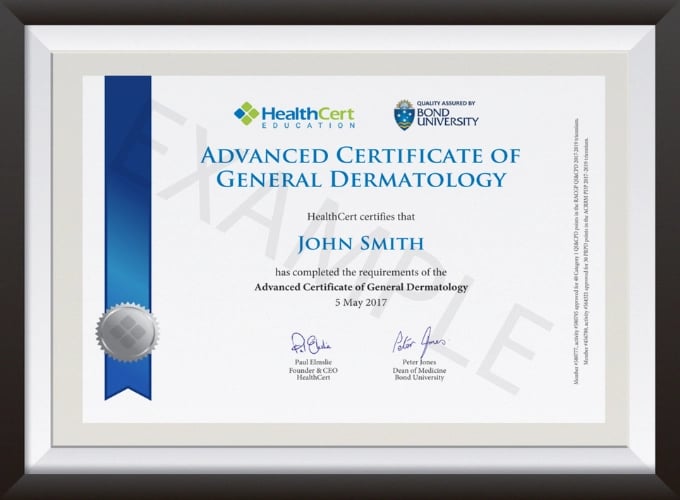

The Advanced Certificate of General Dermatology is an extremely valuable resource.
Dr M. S. Mughal
The content of this course is extensive and the presentations are easy to follow.
Dr O. Akintoroye
Interesting and well presented content.
Dr C. Birch
This course is very relevant to primary care practice.
Dr T. Aung
The Advanced Certificate of General Dermatology was very consistent and comprehensive.
Dr P. Hajbabaie
| RACGP Activity Number | ACRRM Activity Number | Activity Title | Education Hours | Performance Hours | Outcome Hours | ||
|---|---|---|---|---|---|---|---|
| 406987 | 38939 | Dermatololgical emergencies, Vitiligo treatmens and Infestations | 406987 | 38939 | 4.5 | 6 | 0 |
| 1431505 | 38946 | Challenging general dermatology cases | 1431505 | 38946 | 0.5 | 7 | 0 |
| 1431450 | 38943 | Patch testing and contact dermatitis and Cuteaneous lymphomas | 1431450 | 38943 | 4 | 6 | 0 |
| 1431491 | 38945 | Hidradenitis suppurativa and Bullous pemphigoid | 1431491 | 38945 | 4 | 6 | 0 |
| 1431474 | 38944 | Rare nail disorders and Cicatricial alopecia | 1431474 | 38944 | 4 | 6 | 0 |
| 1431426 | 38942 | Atopic dermatitis and Acne 2 | 1431426 | 38942 | 4 | 6 | 0 |
| 407010 | 38941 | Systemic treatment options for psoriasis and Systemic treatment of Lichen Planus | 407010 | 38941 | 4 | 6 | 0 |
| 406991 | 38940 | Treatment of dermatomyositis and Treatement of sarcoidosis | 406991 | 38940 | 4 | 6 | 0 |
| 809228 | 38766 | Psoriasis Outcome Improvement Activity | 809228 | 38766 | 0 | 0 | 8.5 |
| Total hours | 29 | 49 | 8.5 | ||||
View the CPD Hours for all HealthCert Education activities.
The purpose of outcome measurement activities is to improve your clinical confidence in managing an identified learning gap. Outcome measurement activities are not a requirement of our Professional Certificate of Advanced Certificate courses; they are a requirement for Australian CPD purposes.
HealthCert Education provides a variety of outcome measurements activities to suit your needs:
The Advanced Certificate of General Dermatology is tailored for general practitioner training and suitable for medical doctors, degree-qualified medical professionals, registered nurses, pharmacists, and dermal therapists.
The prerequisite for this course is the successful completion of the Professional Certificate of General Dermatology (or qualification deemed equivalent). HealthCert also recommends successful completion of at least 25 cases of general dermatology prior to enrolment.
Participants do not have to pass an IELTS test but, as the courses are delivered in English, proficiency in listening, reading and writing English is assumed.
Participants will require access to a computer/laptop, an internet connection and a basic level of technology proficiency to access and navigate the online learning portal.
Professionally recognised qualifications and prior studies may be recognised for entry into this course if the learning outcomes match exactly. Please ask a HealthCert Education Advisor for an individual assessment of your prior qualifications and experience.
This certificate course meets the minimum 50 hours CPD annual requirement across all three mandatory CPD activity types, provided an outcome measurement activity with a minimum of five hours is completed. You may use an optional HealthCert outcome measurement activity or develop your own.
Outcome measurement activities are not a requirement of Professional or Advanced Certificates.
Upon successful completion of the course requirements, course participants will receive the Advanced Certificate of General Dermatology and CPD hours.
This certificate course:
To learn more about the delivery of certificates in Australia and overseas, please visit our FAQs.
Professional Diploma Pathway
This course is the second stage of the professional diploma pathway. The full pathway is: Professional Certificate of General Dermatology, Advanced Certificate of General Dermatology, Professional Diploma of General Dermatology.
Postgraduate Pathway
This pathway is suitable for doctors who are mainly interested in clinical academic study. The Postgraduate Diploma in Dermatology is studied through the Rila Institute of Health Sciences and awarded by the University of Plymouth (UK).
There are three modules in the Postgraduate Diploma. Medical professionals who successfully complete the HealthCert Professional Certificate of General Dermatology, Advanced Certificate of General Dermatology and Professional Diploma of General Dermatology will be eligible to apply for Accreditation of Prior Certified Learning (APCL) for module 3 of the Rila Institute/Plymouth University Postgraduate Diploma in Dermatology.
The Postgraduate Diploma is mainly delivered online. No practical workshops will be required due to the APCL from the HealthCert qualifications. Overall there will be a time saving of 40 per cent of the postgraduate program due to the APCL. Exams will be held in Perth, Western Australia.
When the Postgraduate Diploma has been successfully completed, medical professionals can apply for credit from the Postgraduate Diploma to the Master of Science in the specialism awarded by the University of Plymouth
Certified Clinical Attachments Pathway
Clinical Attachments in Dermatology are optional and available on a 1:1 or small group basis. These provide the opportunity to observe skin cancer medicine treatments and ask questions of the expert performing the treatments. In addition to clinical attachments in Australia, university teaching hospitals at the University of Vienna is available for clinical attachment.
This organisation is an RACGP-accredited CPD provider under the RACGP CPD Program.



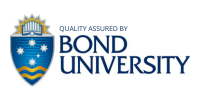
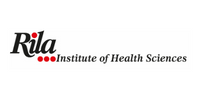
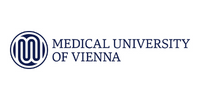
Don't see your question? Explore other faqs or talk to us.
Fees will vary based on the program and study option selected (fully online vs online + optional practical workshop). Payments can be made upfront or in monthly instalments. Special rates and various payment options are available. GP registrars and doctors in training enjoy a scholarship of up to $500. Talk to us to learn more.
Completion of any HealthCert course or attendance at an event will enable you to access the HealthCert Alumni Program which includes:
HealthCert Education is pleased to issue digital credentials for alumni. Digital credentials are a permanent online record of your successful completion of a HealthCert course and are issued to all course participants in addition to PDF certificates. If you are based in Australia, you also have the option to order a hard copy of your digital certificate for a small additional fee.
The recommended study duration of this certificate course is 78 hours, which includes study of the pre-course activities and readings, online lectures, live tutorials, and online assessment. This self-paced course offers the flexibility of 100% online study in your own time, at your own pace, in your own home or office, with no mandatory face-to-face requirements. You are not required to be online at specific times but can view and replay video lectures at your convenience.
All HealthCert courses meet World Federation of Medical Education standards. This certificate course qualifies for CPD hours from the Royal Australian College of General Practitioners (RACGP) and the Australian College of Rural and Remote Medicine (ACRRM) in Australia. It is recognised by the Royal New Zealand College of General Practitioners (RNZCGP) in New Zealand. It is recognised by the Hong Kong College of Family Physicians (HKCFP) in China. It is a self-submitted activity in Dubai and the United Kingdom. It is a self-submitted activity through the College of Family Physicians in Canada. If you live or work outside one of the above-mentioned countries, please contact us on admin@healthcert.com to discuss whether this course can be recognised in your country.
Want to stay up-to-date with the latest case studies, podcasts, free video tutorials and medical research articles pertinent to primary care?
Our Education Advisors can assist you with any queries and tailor our education pathway to suit your current expertise, interests and career goals.